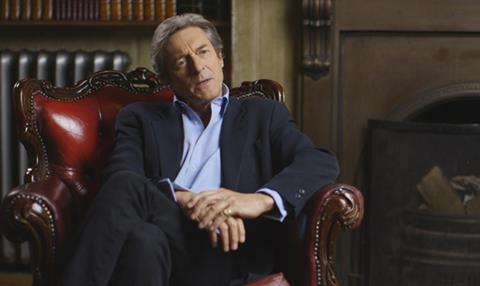“Straining to seem socially anthropological, the show often forgot to be funny.”

Very British Problems, Channel 4
“Not every observation was as original as it might have been and not every contributor as witty as you’d hope, but Very British Problem #342 should still be added to the list: the embarrassment of having to admit you found a talking-heads show really quite amusing, after years of publicly disdaining them.”
Ellen E Jones, The Independent
“You might have found Very British Problems mildly diverting. Or you might consider that after a while the Very British Problem can begin to feel self-indulgent and a teeny bit dull.”
Esther Addley, The Guardian
“The problems discussed on Very British Problems were not problems at all. The documentary was billed as a celebration of Britishness. It was as much a celebration of celebrities’ willingness to do anything for a fee.”
Andrew Billen, The Times
“Beneath the modern exterior, Very British Problems was an old-fashioned list show. Watchable enough. Noticing things isn’t the same as being witty about them though. Straining to seem socially anthropological, the show often forgot to be funny.”
Michael Hogan, The Telegraph
“For what felt like a very long time last night, I watched as celebrity face after celebrity face delivered stuff that I’d probably have shared around if I’d seen it on the internet, but in bulk, demanding my attention on a TV screen, sounded like the weakest kind of observational stand-up.”
Matt Baylis, Daily Express
“Very British Problems was suffering from a very British problem: this whole show had apparently been dreamed up, researched and written by under-25s. Or possibly teenagers. It was such a badly thought-out show that the celebs clearly had no idea what they were supposed to be talking about.”
Christopher Stevens, Daily Mail
Who Do You Think You Are?, BBC1
“WDYTYA is one of those programmes that seems to have been always with us and may indeed always be on, somewhere, in the murkier recesses of one’s satellite box. But what a lovely, simple, suddenly moving gem it remains.”
Esther Addley, The Guardian
“Paul Hollywood’s quest was a worthy exercise all around, not just bringing him some clarity but explaining to those lucky enough not to know exactly what war really entails.”
Matt Baylis, Daily Express
“The first half of the episode was really one for the Second World War buffs only. It was the episode’s second half, however, in which Hollywood reached further back to his Scottish roots, which offered a more satisfying set of WDYTYA surprises.”
Ellen E Jones, The Independent
“While researching his family tree, the silver fox unearthed some colourful characters. It made for an absorbing and affecting hour of television.”
Michael Hogan, The Telegraph
“Paul Hollywood was intent on his favourite subject — himself — but he found his family tree so fascinating that it wasn’t hard to forgive him. His grandfather’s wartime exploits were both moving and terrifying.”
Christopher Stevens, Daily Mail
The Unbreakables, BBC3
“The genius of Guy King’s films was that they celebrated individuality not disability. There was also an insight: integration with the able-bodied is not always the answer. As the unbreakables snogged, bantered and got drunk together, we witnessed a segregation that worked because it conferred equality.”
Andrew Billen, The Times


























No comments yet